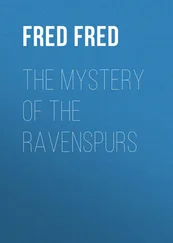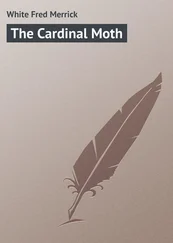Ford Ford - The Brown Owl
Здесь есть возможность читать онлайн «Ford Ford - The Brown Owl» — ознакомительный отрывок электронной книги совершенно бесплатно, а после прочтения отрывка купить полную версию. В некоторых случаях можно слушать аудио, скачать через торрент в формате fb2 и присутствует краткое содержание. Жанр: foreign_antique, foreign_prose, на английском языке. Описание произведения, (предисловие) а так же отзывы посетителей доступны на портале библиотеки ЛибКат.
- Название:The Brown Owl
- Автор:
- Жанр:
- Год:неизвестен
- ISBN:нет данных
- Рейтинг книги:5 / 5. Голосов: 1
-
Избранное:Добавить в избранное
- Отзывы:
-
Ваша оценка:
- 100
- 1
- 2
- 3
- 4
- 5
The Brown Owl: краткое содержание, описание и аннотация
Предлагаем к чтению аннотацию, описание, краткое содержание или предисловие (зависит от того, что написал сам автор книги «The Brown Owl»). Если вы не нашли необходимую информацию о книге — напишите в комментариях, мы постараемся отыскать её.
The Brown Owl — читать онлайн ознакомительный отрывок
Ниже представлен текст книги, разбитый по страницам. Система сохранения места последней прочитанной страницы, позволяет с удобством читать онлайн бесплатно книгу «The Brown Owl», без необходимости каждый раз заново искать на чём Вы остановились. Поставьте закладку, и сможете в любой момент перейти на страницу, на которой закончили чтение.
Интервал:
Закладка:
Ford H. Madox Hueffer
The Brown Owl / A Fairy Story
ONCE upon a time, a long while ago – in fact long before Egypt had risen to power and before Rome or Greece had ever been heard of – and that was some time before you were born, you know – there was a king who reigned over a very large and powerful kingdom.
Now this king was rather old, he had founded his kingdom himself, and he had reigned over it nine hundred and ninety-nine and a half years already. As I have said before, it was a very large kingdom, for it contained, among other things, the whole of the western half of the world. The rest of the world was divided into smaller kingdoms, and each kingdom was ruled over by separate princes, who, however, were none of them so old as Intafernes, as he was called.
Now King Intafernes was an exceedingly powerful magician – that was why he had remained so long on the throne; for you must know that in this country the people were divided into two classes – those who were magicians, and those who weren’t. The magicians called themselves Aristocrats, and the others called themselves what they liked; also in this country, as in all other countries, the rich magicians had the upper hand over the rest, but still the others did not grumble, for they were not badly treated on the whole. Now of all the magicians in the country the King was the greatest, and no one approached him in magic power but the Chancellor, who was called Merrymineral, and he even was no match for the King.
Among other things King Intafernes had a daughter, who was exceedingly beautiful – as indeed all princesses are or ought to be. She had a very fair face, and a wealth of golden hair that fell over her shoulders, like a shining waterfall falling in ripples to her waist.
Now in the thousandth year of her father’s reign the Princess was eighteen, and in that country she was already of age. Three days before her nineteenth birthday, however, her father fell sick and gradually weakened, until at last he had only strength left to lie in his royal bed. Still, however, he retained his faculties, and on the Princess’s birthday he made all the magicians file before his bed and swear to be faithful for ever to the Princess. Last of all came the Chancellor, the pious Merrymineral, and as he took the oath the King looked at him with a loving glance and said:
‘Ah! my dear Merrymineral, in truth there was no need for thee to have taken the oath, for it is thy nature to be faithful; and it being thy nature, thou couldst not but be faithful.’
To which the pious Merrymineral answered:
‘To such a master and to such a mistress how could I but be faithful?’ and to this noble sentiment the three hundred and forty-seven magicians could not help according unanimous applause.
When they were quiet again the King said:
‘So be it, good Merrymineral, do thou always act up to thy words. But now leave, good men all, for I am near my end, and would fain spend my last moments with my daughter here.’
Sorrowfully, one by one, the courtiers left, wishing him their last adieux. He had been a good king to all, all through his long reign, and they were sorry that he had to leave them at last.
Soon they were all gone except the good Merrymineral, and at last he too went, his whole frame shaking with suppressed sobs; his body seemed powerless with grief, and his limbs seemed to refuse their functions. The King looked after him, carefully noticing whether the door was shut. Then he spoke:
‘My dear daughter,’ he said, ‘when I am gone be kind to every one, and, above all, cherish the Owl – do cherish the Owl – promise me to cherish the Owl.’
‘But how can I cherish the Owl?’ cried the poor Princess; ‘how can I, unless I know who he is?’
But the King only answered:
‘Dear Ismara, do promise to cherish the Owl!’
And he said nothing else for a long time, until at last the Princess saw that the only way to let him rest in peace was to promise, and she said:
‘I promise, dear father, but still I do wish I knew who or what the Owl is that I am to cherish.’
‘You will see that in good time,’ answered the King. ‘Now, my dear Ismara, I shall die happy, and you will be safe. If you had not promised – however, we will let that rest unsaid. Now wheel the bed to where I can see out of the window.’
The Princess did as she was told. Now from this you must not imagine that she was a very strong princess – for she was no stronger than most princesses of her age; but the old King, who was a very powerful magician, as I have told you already, made the bed easy for her to move. He might have made it move of its own accord, but he knew that it would please his daughter to be of service to him, and so he let her move it.
The view from the window was very fine. A dark wood grew in the foreground, and far away over the tree-tops were the blue hills, behind which the sun was just preparing to retire. And it seemed angry, the sun, for its face was dark and clouded, and its beams smote fiercely on everything, and gilded the tops of the autumn trees with a purer gold than their natural tint. But overhead the clouds spread darkly, and they reached in a black pall to the verge of the horizon, forming a black frame to the red-gold sunset; for only the extreme west was bright with the waning light.
The Princess sat on the bed beside the King, and the dying sun lit them both and fell with a ruddy glare on the King’s hard countenance, as if it knew that his work on earth for the day, and for ever, was done.
‘Is it not grand?’ cried the old King, as if the glorious sight warmed his blood again and made him once more young. ‘And is it not grand to think of the power that thou hast, my daughter? If thou but raise thy little finger armies will move from world’s end to world’s end. Fleets come daily from every land for thee alone; all that thou seest is thine, and utterly within thy power. Think of the power, the grand power, of swaying the world.’
But long before he had got thus far, the Princess was weeping bitterly – partly at the overwhelming prospect, and partly from her great grief. She seized her father’s hand and kissed it passionately.
‘My father, my father,’ she cried, ‘say not so; they are all thine, not mine, for thou livest still, and all is yet well.’
But the old King cut her short:
‘Dost thou see the sun? Look, its lower rim is already cut by the mountains. When its disc is hidden I too shall have joined the majority, and my soul will have left my body, and the power will be thine. But above all cherish the Owl. Never go out of its sight, for if thou do, some harm will happen.’
As he stopped speaking a flash of lightning lit up the sky, and the sullen roar of distant thunder followed.
From every church in the land the passing bell tolled forth and the solemn sounds came swelling on the breeze. Again came the flash of lightning, and again the thunder, and now the splash of falling rain accompanied and almost drowned the thunder. The sun’s rim was now almost down.
For the last time the old King kissed his daughter, as she hung weeping on his neck. Again the lightning came, but this time the thunder was drowned in a more fearful sound. Never before had the sound been heard, except at the death of the Princess’s mother. It was the passing bell of the cathedral of the town. And as its sound went forth throughout the whole land men shook their heads in sorrow, for they knew that the soul of the good King had left his body. Through the whole land the news was known – to every one except to the Princess.
For she lay on the bed passionately kissing the dead face – not yet cold in death – and calling on his name in vain; for the ears of the dead are closed ‘to the voice of the charmer, charm he never so wisely.’
Читать дальшеИнтервал:
Закладка:
Похожие книги на «The Brown Owl»
Представляем Вашему вниманию похожие книги на «The Brown Owl» списком для выбора. Мы отобрали схожую по названию и смыслу литературу в надежде предоставить читателям больше вариантов отыскать новые, интересные, ещё непрочитанные произведения.
Обсуждение, отзывы о книге «The Brown Owl» и просто собственные мнения читателей. Оставьте ваши комментарии, напишите, что Вы думаете о произведении, его смысле или главных героях. Укажите что конкретно понравилось, а что нет, и почему Вы так считаете.












